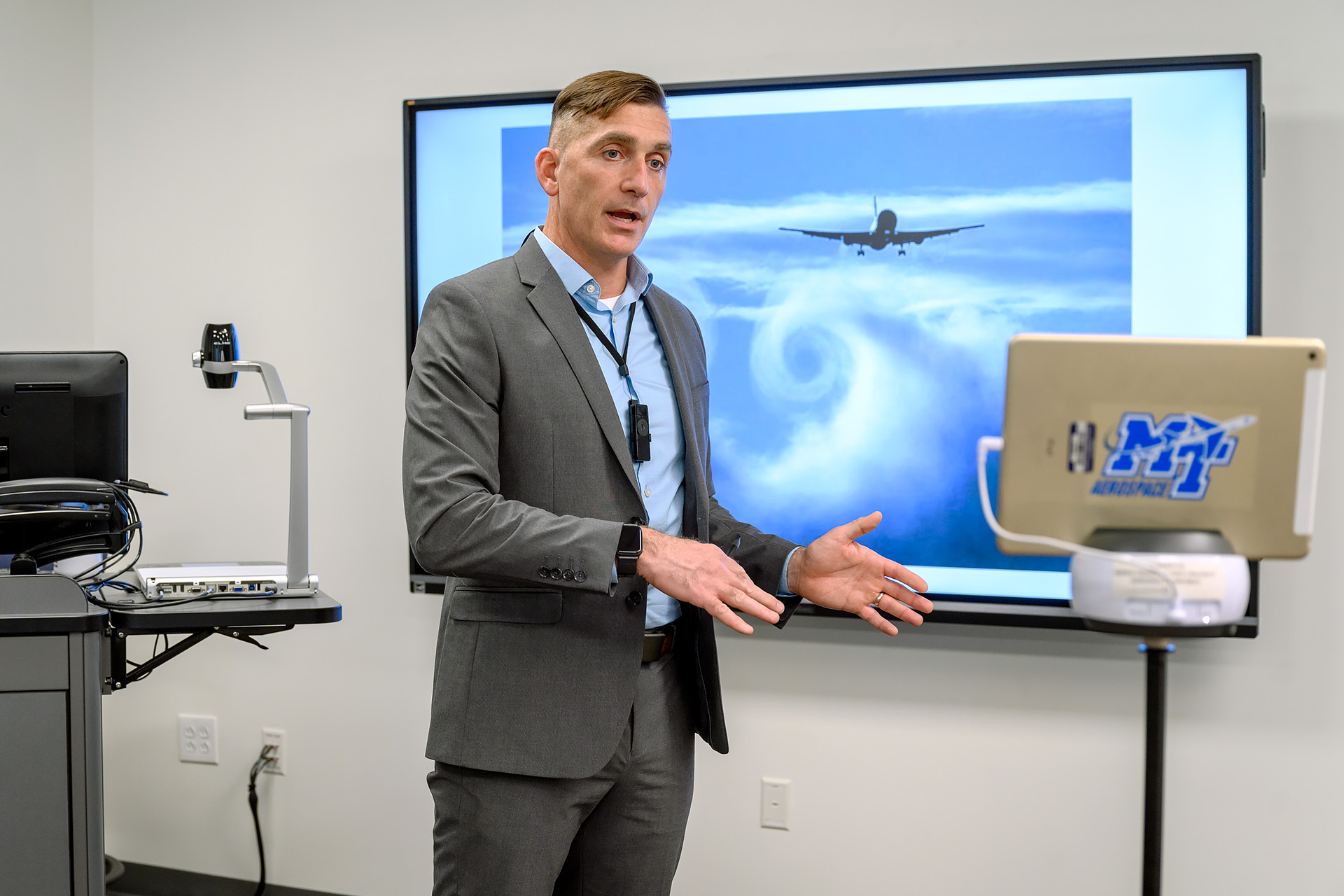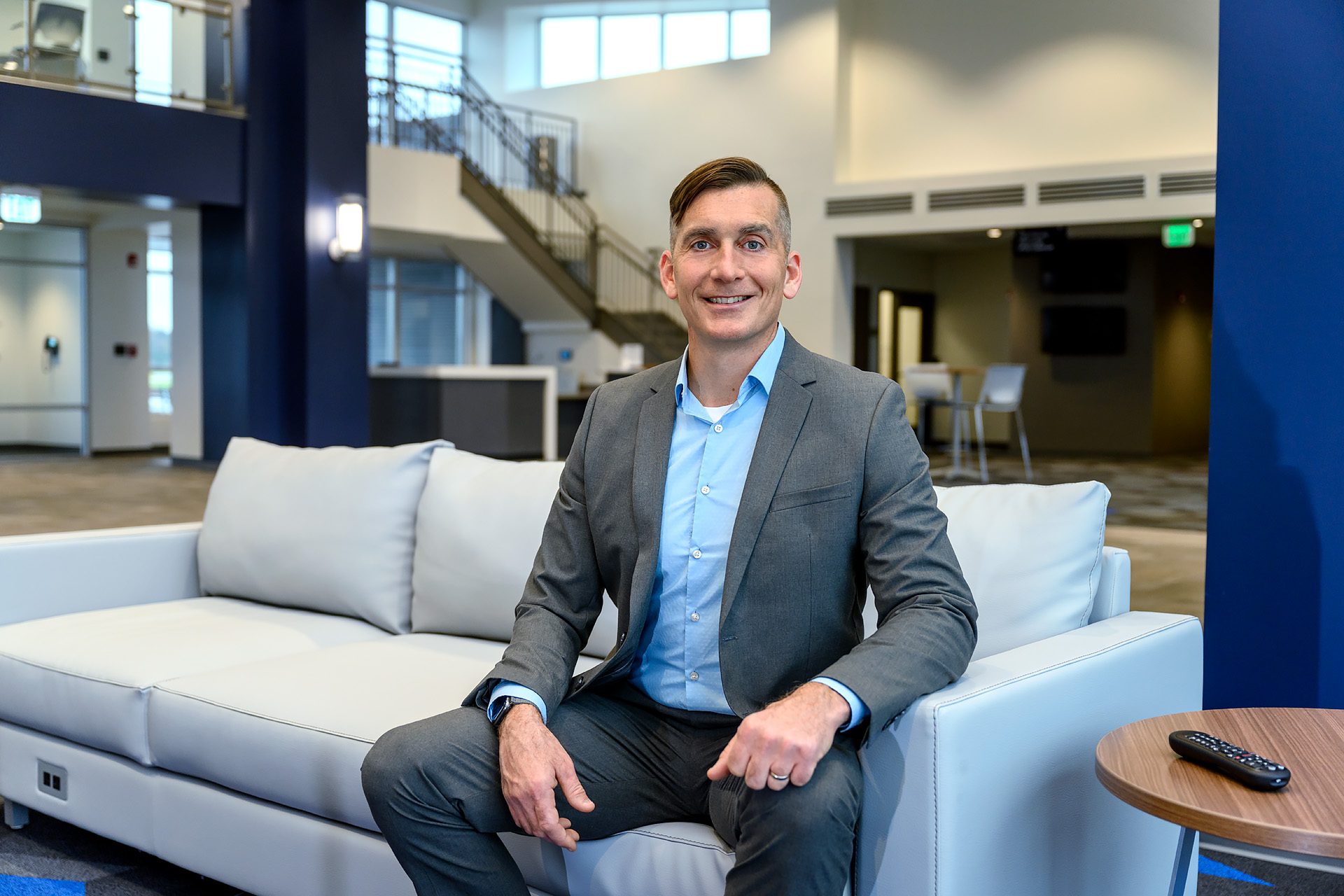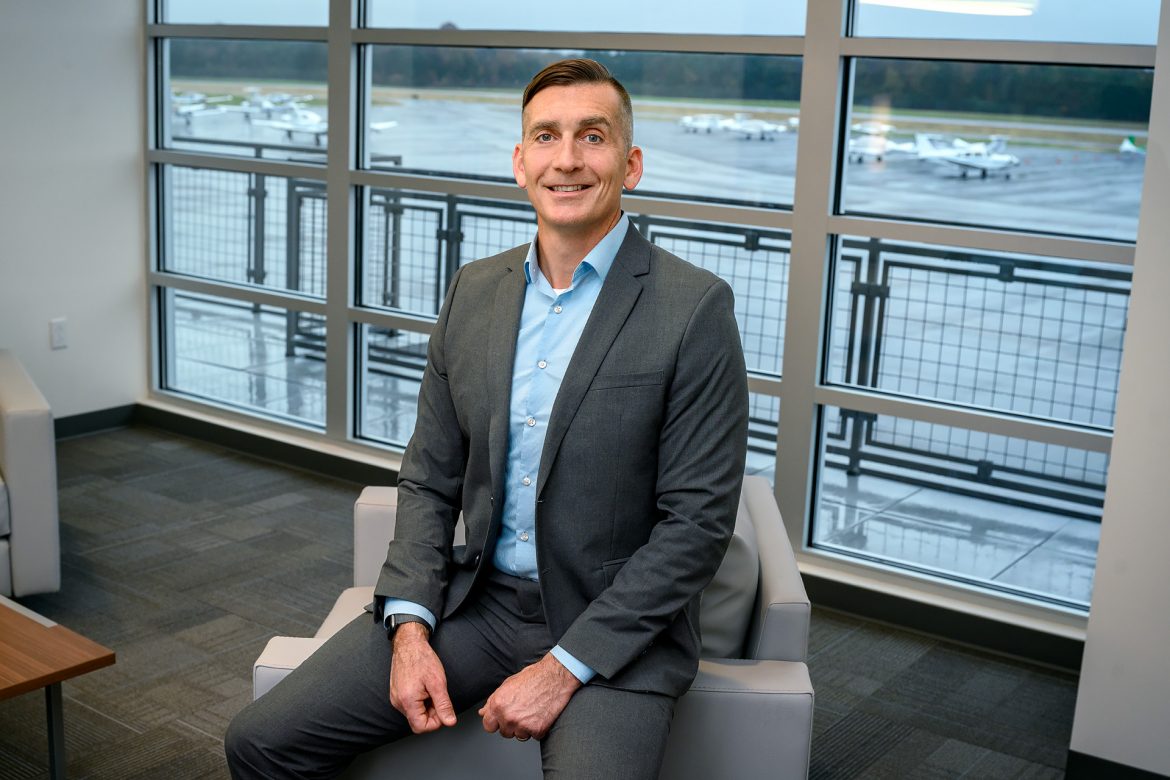Nate Callender somehow manages to juggle teaching, technology, research and family.
An MTSU associate professor in the Department of Aerospace, Callender tries to inspire his students in the “pursuit of wisdom” by pursuing it himself. He wants his students to discover the truth of the proverb “blessed is the one who finds wisdom, and the one who gets understanding.”
Callender, 43, a native of Halls, Tennessee, now living in Murfreesboro, teaches courses within and coordinates the aerospace technology concentration; supervises the aerospace technology laboratory; mentors undergraduate and graduate researchers (aerospace technology seniors, undergraduate research scholars, Honors and master’s students).
A faculty member since 2005, Callender also chairs department and university committees; is a member of EXL (experiential learning), Honors College and graduate faculty; and associate chair of the Aerospace Department.

Nate Callender, PhD, Aerospace Faculty Profile at the Murfreesboro airport. (Photo: J. Intintoli)
During a time of uncertainty from spring break through the fall semester because of the COVID-19 pandemic when many classes were held remotely, Callender remained a reliable, steady influence with his students.
“I try to exemplify calmness of temper and judgment inside and outside of the classroom,” said Callender, who earned both his master’s in aviation systems and doctorate in engineering science from the University of Tennessee Space Institute in Tullahoma, Tennessee.
With all courses since early March being delivered remotely, Callender has brought a strong mix of prerecorded and synchronous question-and-answer sessions, where students were engaged in learning events at the same time.
He was available to assist students — by texts, emails, phone calls and Zooms — at all hours to meet their schedules and “have rapid answers to questions, so their course progress won’t be hampered,” he said.
All along, he assisted greatly in ensuring the technology capabilities at the airport (the Aerospace Mobile Classroom and a separate classroom at the new Murfreesboro Municipal Airport terminal) continued to work, plus training other faculty on this equipment.
“Student enrollment in the Aerospace Department has increased significantly in the last four years and only continued to do so throughout the summer and fall,” he said.

Nate Callender, PhD, Aerospace Faculty Profile at the Murfreesboro airport. (Photo: J. Intintoli)
Callender taught four courses — fundamentals of aerodynamics, two sections of aircraft performance and problems in aerospace — to a combined 87 students remotely in the spring. He incorporates glider design competitions, flight testing and wind tunnel usage in his classes.
This fall, nearly 130 students have been taking the same remote courses. His lecture videos and quizzes were “administered to allow students to move at their own pace and optional Zoom question-and-answer sessions have been held weekly,” he said.
“The topics discussed in Zoom sessions include questions about lecture content, quiz help, homework help, test review help and test question clarification,” he said. “Many students who have joined Zoom sessions have done so to simply listen to the questions that others have, much like in a conventional class.”
Using a robot, Callender has recorded every lecture from every class he has taught for the last five years. For remote instruction in the COVID environment, lecture videos from recent semesters were chosen, arranged and provided to students. Quizzes were incorporated between certain lectures.
Callender has adapted various technologies to provide lectures to students who miss because of sickness, primarily COVID-19, and trained aerospace faculty members to learn how to use the equipment.
“Philosophically, conventional courses in general provide the best educational experience,” he said. “However, remote courses present certain advantages. Students with good time management skills and motivation are able to work through material at a fast pace, leaving more time for Q&A and questions.”
“The downside is for students who do not manage their time well and/or who are not motivated. They can easily fall behind. Teaching remotely seems to bring these issues to light,” he added.
A researcher in propeller noise reduction and computational fluid dynamic work on rotating cylinders, Callender has received various scholarly awards.
— Randy Weiler (Randy.Weiler@mtsu.edu)


COMMENTS ARE OFF THIS POST